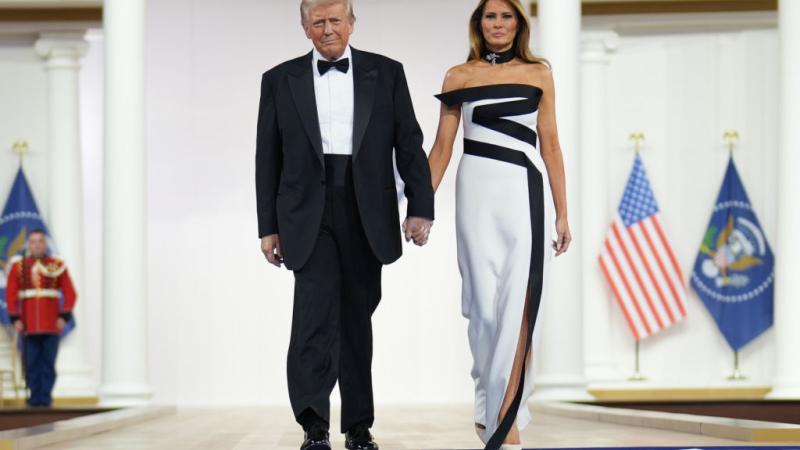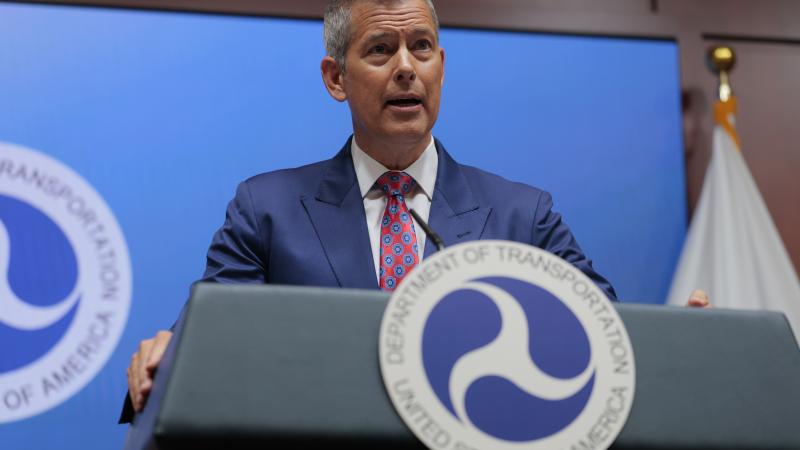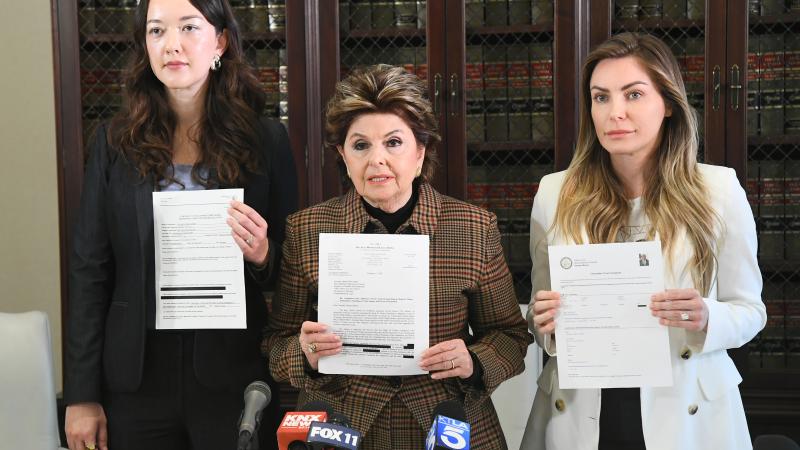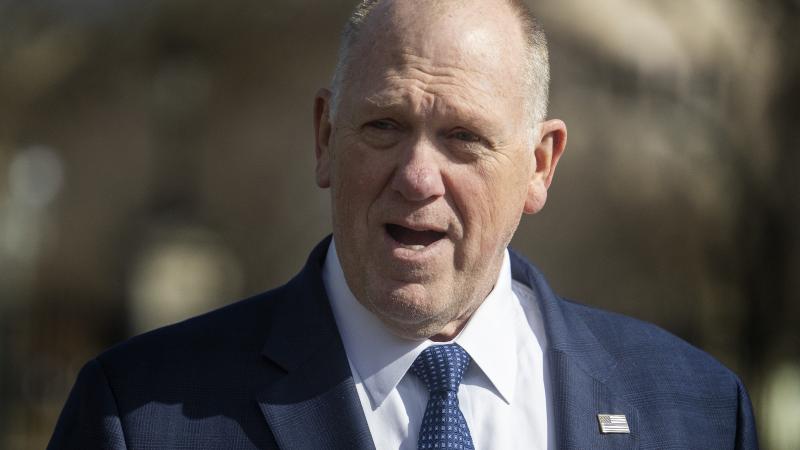Georgetown gets 'Lifetime Censorship Award' from campus free speech watchdogs
Other offenders on Foundation for Individual Rights and Expression list dinged for censoring students, punishing faculty, DEI requirements, drag-related controversies.
Georgetown University's law school put a newly hired constitutional scholar on leave for four months for his "inartful" criticism of President Biden's identity box-checking for a Supreme Court nomination.
It cleared Ilya Shapiro on a technicality after classes ended for the year, rather than deeming his speech protected by academic freedom, prompting Shapiro to leave for a conservative think tank where he said he won't be dogged by "the speech police."
That incident is one factor behind the Jesuit institution's "Lifetime Censorship Award" from the Foundation for Individual Rights and Expression, released concurrently with its 12th annual list of the 10 worst colleges for free speech.
Georgetown has made several appearances on FIRE's lists: 2015, 2017, 2019 and last year for both the Shapiro incident and sanctioning law professors for bemoaning low black student performance in what they thought was a private conversation.
Only four of the colleges on the 2023 list are faulted for actions against students, which reinforces years of surveys that found student reluctance to share their views is not primarily due to fear of academic or administrative sanctions.
A new systemwide survey of University of Wisconsin students, conducted over the objections of a chancellor who resigned in protest, echoes a national survey by the Knight Foundation a year ago.
The UW survey found that nearly six in 10 have self-censored in class for various reasons: fear of peers disagreeing (60%) or filing a complaint against them (31%), as well as retaliatory grading (40%). The most fearful identified as "very conservative," WMTV reported.
Two colleges make consecutive appearances on FIRE's 2022 and 2023 lists. FIRE filed three lawsuits against public Collin College in Texas for repeated retaliation against faculty for criticizing its policies. It filed an accreditor complaint against Boston's private Emerson College for suspending and repeatedly censoring its Turning Point USA chapter, and paid for a truck to circle campus criticizing administrators.
A new arrival on the 10-worst list, Minnesota's Hamline University, is also facing an accreditation probe at FIRE's behest. The school dumped an art history professor after she showed students depictions of the Prophet Muhammad.
President Fayneese Miller issued a statement within hours of ex-professor Erika Lopez Prater's lawsuit against the private school, admitting it was wrong to call her pedagogy "Islamophobic." Though faculty voted overwhelmingly for Miller's resignation, Hamline's president remains in power.
Pennsylvania State University canceled a student event featuring Proud Boys founder Gavin McInnes and conservative comedian Alex Stein before it started, citing "escalating violence" outside the venue — pepper-spraying and spitting — that its own police refused to address.
Penn State previously imposed after-the-fact security fees on the student group, Uncensored America, for a different event but relented when FIRE intervened.
The University of Pennsylvania made the new list for seeking a "major sanction" against tenured law professor Amy Wax for repeatedly offending students. The law school dropped its four-year claim that Wax invented statistics on black student performance when it requested the Faculty Senate proceeding last summer.
Wax filed a formal grievance against Dean Ted Ruger in mid-January, accusing him of bringing "behavioral" charges against her to mask the attack on her "freedom of inquiry and tenure protections." The Daily Pennsylvanian also posted Wax's memorandum accusing Ruger of refusing to delay the proceeding due to her cancer treatment.
The law school told Reuters it can't comment on Wax's new allegations and scolded her for "litigat[ing] the matter — asserting only her views of the facts — in the public press."
The University of Oregon, which requires diversity, equity and inclusion statements from all tenure-track faculty, further instructed hiring and promotion committees on how to grade applicants. DEI statements that oppose racial affinity groups as segregationist should get low grades, for example.
Loyola University New Orleans subjected professor Walter Block to years of investigations and sanctions for "everything from his teaching of particular economic theories to his classroom discussion of Gandhi and Hitler," FIRE said last fall. Allegations were partly based on reporting by The New York Times, which years earlier reached a "nonmonetary" settlement with Block to end his revived defamation lawsuit.
Emporia State University in Kansas adopted a sweeping "workforce management" policy, portrayed as a COVID-19 cost-saving measure, that FIRE said "effectively end[ed]" tenure and opened faculty to firing for criticizing the school.
Tennessee Tech made the list for its response to a drag show in a campus theater. President Phil Oldham said last fall the registered student groups that "facilitated the scheduling and promotion" of the show couldn't host campus events "pending a review" focused on "the inappropriate involvement of minors."
While FIRE said the punishment and censorship of the student groups was "ongoing," the Backdoor Playhouse hosted a drag show days before FIRE's report was published. Senior program officer Zack Greenberg told Just the News he was checking on the groups' status.
Texas A&M University was similarly flagged for conflicts with student groups, some involving their funding. It ordered the student newspaper to stop printing issues a year ago but partially backtracked following criticism, promising to cover The Battalion's lost advertising revenue.
When Texas A&M stopped sponsoring the student-run drag show Draggieland, it "barred the event's organizers from access to thousands of dollars of previous years' profits," FIRE said last spring.
The university pointed Just the News to its sterling speech rating from FIRE. It told The Battalion "we are perplexed" by the new list, which "does not appear to rely on its own data" from FIRE's speech ratings but rather "a sliver of information that lacks context for all this university does to ensure free speech."
FIRE senior program officer Ryan Ansloan told Just the News that while Texas A&M has "no written speech codes that substantially threaten free speech," and its "green light" rating is safe, its "actions have unfortunately spoken louder than their words" over the past year.
Other colleges didn't respond to queries.
The Facts Inside Our Reporter's Notebook
Videos
Links
- "inartful" criticism of President Biden's identity box-checking
- he said he won't be dogged by "the speech police."
- 12th annual list
- 10 worst colleges for free speech.
- sanctioning law professors for bemoaning low black student performance
- a chancellor who resigned in protest
- national survey by the Knight Foundation
- WMTV reported
- facing an accreditation probe at FIRE's behest
- ex-professor Erika Lopez Prater's lawsuit
- faculty voted overwhelmingly for Miller's resignation
- its own police refused to address
- relented when FIRE intervened
- when it requested the Faculty Senate proceeding
- Wax filed a formal grievance against Dean Ted Ruger
- The Daily Pennsylvanian
- Wax's memorandum
- Reuters
- further instructed hiring and promotion committees
- DEI statements that oppose racial affinity groups
- FIRE said last fall
- "nonmonetary" settlement with Block
- revived defamation lawsuit
- President Phil Oldham said
- Backdoor Playhouse hosted a drag show
- partially backtracked following criticism
- FIRE said last spring
- sterling speech rating from FIRE
- The Battalion
















